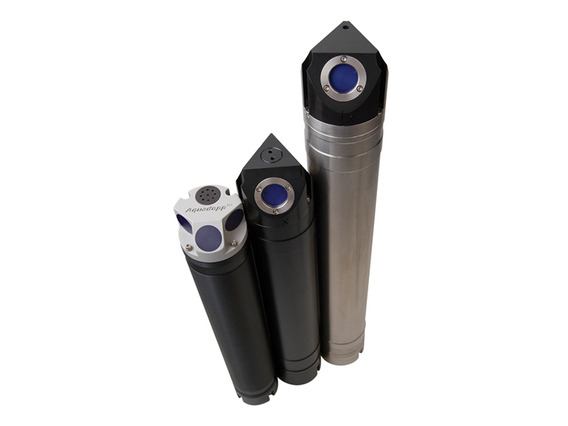Nortek Aquadopp – 6000 m
Availability: Rental
The 6000 m Aquadopp is “the big brother” in the line of Aquadopp models. The all-titanium mechanical housing is built to last at great ocean depths. The overall design is the result of a testing and verification process that has included many of the world’s largest oceanographic institutions.
Rugged and resistant, the 6000 m model still retains all the capabilities of the standard Aquadopp.
Relative to the standard system, it has a larger diameter (about 84 mm vs. 75 mm) and is built from titanium grade 2. As a result, the instrument is heavier than the standard instrument, but at 10 kg, it is still possible to handle one or two units without any lifting equipment.
The transducer sensor head is made from machined Delrin® materials and the orientation of the beams is the same as in the standard “mooring head” configuration.
In the deep ocean, there are fewer particles than in the upper 500 m of the water column. While the decay in signal strength is small from about 1000 m down to full ocean depth, tests show significant variations across the globe. Mid-water deployments represent a real challenge for instruments that depend on acoustic backscatter and considerable work has been done to understand the factors that affect the acoustic signal strength and to improve the magnitude of the returned echo. This work is reflected in the design of the current electronics and 6000 m transducer design.
The most common application for the 6000 m Aquadopp is deep-water moorings, where one or more instruments are mounted on a cable that stretches from the bottom to a subsurface float. The instruments can either be clamped directly to the cable or a fin can be used to make sure the instrument is always oriented into the flow. Other applications include bottom frames, where the Aquadopp can be used to measure the currents below, above or to the side of the bottom frames.
Other Use Cases
Features
- The Aquadopp records all relevant parameters to the internal recorder, including acoustic signal strength, tilt, compass, battery voltage, and status/error code.
- The sampling strategy is very flexible. The measurement interval, the averaging interval and the exact pinging rate can all be set independently in the deployment planning menu included as part of the standard software.
- The compass includes a hard iron calibration routine that makes it possible to remove the effects of the cable and the mounting clamps on the compass measurements.
- Using the diagnostic mode, the detailed mooring motion (heave, rotation, tilt) can be measured and understood.
- The acoustic signal strength is recorded in order to provide a direct measure of the acoustic conditions.
